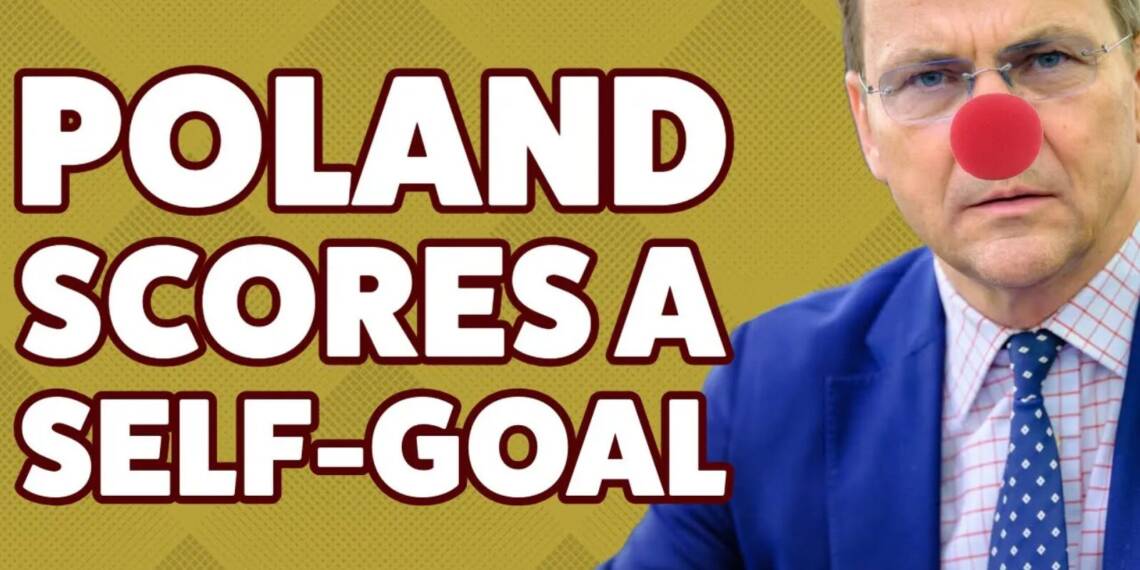Radek Sikorski, Poland’s Foreign Minister, decided to toss a linguistic curveball during a speech to the Sejm, making a bold statement about Ukraine’s territorial rights—by deploying the Ukrainian names for regions historically gripped by Polish control. What a way to stir the geopolitical pot!
For those in need of a quick historical catch-up: Lviv—or Lwów, if you’re browsing through a Polish history book—was a cozy part of the Polish Crown for a good 400 years. Now, fast-forward through centuries of complicated history, and you have Sikorski at the podium, essentially telling the world—and particularly a very eavesdropping Kremlin—that these lands are undeniably Ukrainian. Yes, he did that, in Ukrainian, no less. It’s not just a diplomatic statement; it’s practically a verbal high-five to Ukraine, served with a side of historical shade.
Sikorski’s linguistic choice isn’t just about modern diplomacy. Oh no, it’s a middle finger to history, suggesting perhaps that the Poles were just keeping the seat warm for centuries. By echoing Ukraine’s names for these regions, he’s not just acknowledging Ukraine’s sovereignty; he’s rewriting a historical narrative right in front of an international audience.
And let’s not miss the witty aside Sikorski slipped in about Poland and Ukraine being one country for 400 years. That’s not just a casual remark; it’s a masterclass in historical misinformation, pointing out the absurdity of any modern territorial squabbles. It’s like saying, “We were roommates in the grand house of history, so no squabbling over who left the cap off the toothpaste.”
By hammering home the Ukrainian names, Sikorski is subtly suggesting that any previous Polish claims might just be relics of a bygone era. It’s a diplomatic dance on the tightrope of historical sensitivities. And in doing so, he’s not just speaking to the Sejm or even to Ukraine. He’s sending a crystal-clear message to Russia: Don’t mess with the historical narrative. We’re all watching, and we’ve got the linguistic receipts to prove it.
But, it seems Sikorski, may have gotten a bit carried away in his latest diplomatic performance, and not to everyone’s delight. By opting for the Ukrainian names of historically Polish-controlled regions during his impassioned speech, Sikorski not only ticked off his own countrymen but inadvertently gave a nod to some rather controversial parts of history. Talk about stepping on a historical landmine with both feet!
Sikorski’s choice to vocalize these regions in Ukrainian was ostensibly a big thumbs up to Ukraine’s territorial claims, but oh dear, the implications! By doing so, he inadvertently stirred the pot on the not-so-small matter of past conflicts where Ukrainian ultra-nationalists weren’t exactly handing out flowers to the Poles. If these areas were “wrongfully” Polish, does that make those dark episodes of violence somewhat less atrocious? That’s the kind of historical can of worms no one wants to open at a diplomatic soirée.
You see, in his quest to be the poster boy for supporting Ukraine against Russian claims, Sikorski might have forgotten that words, much like tweets, are forever. His decision to swap Lwów for Lviv wasn’t just a linguistic choice—it was a political statement that has now backfired spectacularly. Instead of simply reaffirming borders, he’s managed to question historical narratives and potentially justify heinous acts as “resistance.” Not exactly the footnote you want in your diplomatic passport!
And as the Russian allegations loom large, poking at old wounds, Sikorski’s linguistic leap seems less like a calculated move and more like a slip on a geopolitical banana peel. The irony? In trying to combat so called Russian propaganda, he might have just penned the first chapter of a new volume himself. Meanwhile, Ukrainian nationalists are likely toasting to his faux pas, while Polish patriots can only facepalm at their top diplomat’s historical fumble.
Poland is in a bit of a hurry these days. While Ukraine’s western allies are busy sending arms and money to it, Poland is catching and delivering rabbits to Ukraine. Yes, rabbits.








